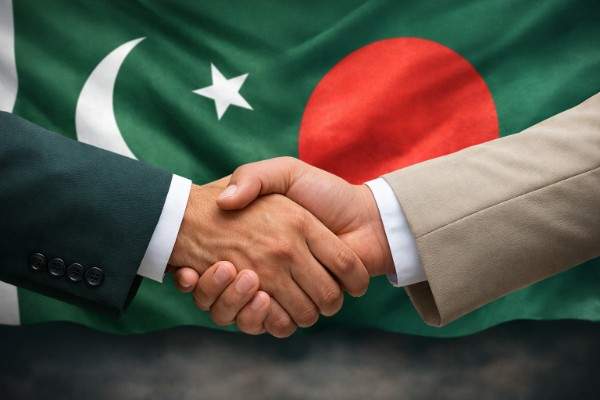16 December 2014 was not the first day when Tehreek-e-Taliban (TTP) or terrorists targeted a school, in the same year on 6 January 2014 terrorists tried to target a school in Hangu, KPK but the sacrifice of Aitzaz Hassan saved the life of many children but due to huge human loss, more than 100+ innocent children’s massacre enhanced the importance of this day to change the strategic culture and policies toward eliminating terrorism.
The first time National Action Plan was introduced, all political and military players were on the same page with a single word that had no sympathy for terrorists.
On 16 December 2014, a group of terrorists attacked the Army Public School (APS) in Peshawar, Pakistan, and killed 144 innocent people including schoolchildren and teachers. The attack on the school in Peshawar prompted a massive response at both the local and international levels, and people turned to various platforms, such as print and social media, to express both strong condemnations and promises of retaliation against the perpetrators.
Although the APS tragedy radically transformed Pakistan into a more cohesive state in its stance against terrorism, the discourses produced by different stakeholders seem to hold and foreground political and ideological differences in the nationalist discourses following the Peshawar tragedy.
The Peshawar tragedy has been referred to as a defining moment in the history of Pakistan to eradicate terrorism and extremism from the country. The tragedy compelled the government to adopt the counterterrorism policy of ‘zero tolerance against militants across Pakistan. State strongly denounced the policy of ‘good Taliban’ and ‘bad Taliban’ and decided to act against not only militants but also their facilitators and sympathizers.
Read More: Projecting Pakistan’s Soft Power Under the United Nations Peace-Keeping Missions
The use of hyperbolic expressions with the superlative form of adjectives such as “the saddest day”, “the darkest day” and “the most- brutal attack” construct the APS tragedy as colossal: ‘The darkest day in the history of nation #Peshawar Attack’. The nation is positively referred to and constructed as united and stronger following the tragedy,
Christian brothers and sisters who have canceled their Christmas celebrations to show solidarity with the nation during difficult times. Such suppression of religious differences in the wake of the national crisis strengthened the notion of national unity. Pakistan as a nation is repeatedly constructed as a united nation in times of national
crisis, the little martyrs of Peshawar have the united Pakistani nation presupposes that the Peshawar tragedy has united the Pakistani nation. Furthermore, the use of the word today entails that the APS tragedy is the main reason behind the national consensus. In doing so, Pakistan is constructed as a strong and responsible nation capable of a national crisis.
It is significant to note here that the Pakistani community is ideologically divided in their opinions on the role of the Pakistan Army in the country. However, the symbolic boundaries between the pro-Army and anti-Army binary blur in the post-APS tragedy social media discourse as the Army emerged as the VICTIM as well as the SAVIOR of the nation.
For instance, the Pakistan Army is referred to and predicted positively as the real Mujahideen of Muhammad-e-Arabi (Sallallahu alahi wasallam) (the real soldier of the Prophet Muhammad). The argument is supported by visuals, as the picture of soldiers in uniform praying in an open field hints at the noble cause of the Pakistan Army.
Moreover, the phrase ‘Iron-clad will’ constructs the PAK ARMY AS WARRIOR with unmatchable strength. Such dissemination of discourses of national pride, unity, harmony, and solidarity are part of nationalism and serve as a foundation for the articulation of national identities.
Read More: Indian Media Exploiting Political Instability in Pakistan
The social media users blamed Musharaf for the ongoing law and order situation in Pakistan. The argument based on the topos of consequence and of number as text producer in Extract 9 contends that Musharaf’s cowardly decision is responsible for the death of soldiers and citizens and the destruction of the country. Although nations disseminate discourses of difference and explicitly construct external Others/them, the internal variation and differences are strategically ignored or suppressed to create temporal, spatial, and interpersonal national unity.
The Peshawar tragedy is marked by Prime Minister Nawaz Sharif as a turning point in the history of Pakistan, as it was argued by the government that no more discrimination would be made between good and bad Taliban. Pakistan social media users also take a position of a foe, not friend, in the case of the Taliban as the superordinate identity of the Taliban is crafted by blurring and defying the boundaries between good Taliban and bad Taliban, pro-state Taliban and anti-state Taliban, as well as Afghan Taliban and Pakistani Taliban (TTP).
About Author
Aizaz Ali Shah has done his MPhil in Strategic Studies from National Defence University and worked as a Visiting Faculty member in the Department of International Relations, Muslim Youth University, Islamabad.












